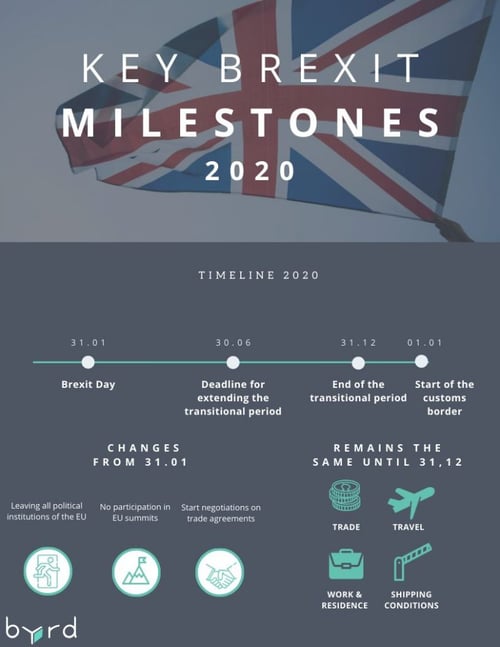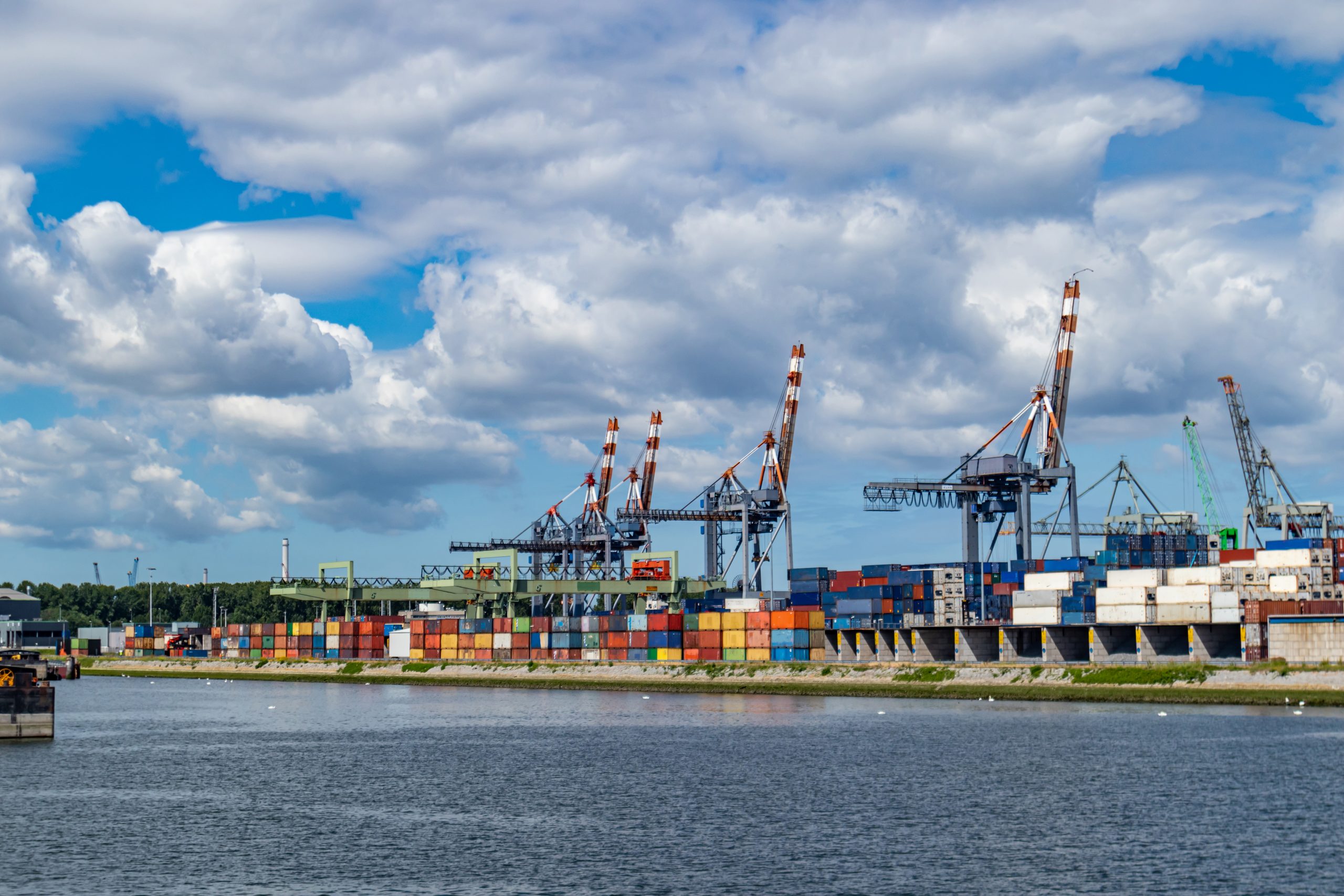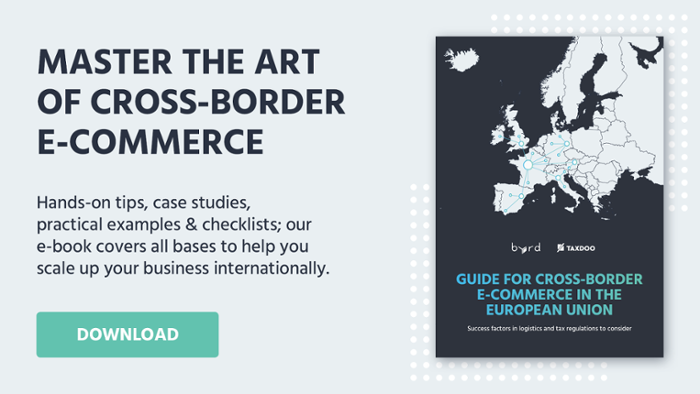How the Brexit will influence e-commerce businesses
Table of Content
On 31 January 2020, after years of discussion and political power, struggles between the United Kingdom and the European Union, the UK formally left the EU. But what does Brexit mean for your e-commerce business and cross-border fulfillment? What other impact does Brexit have on e-commerce in the UK, and e-commerce in the EU in general? This article will help you to understand what you have to consider, what risks, and what opportunities Brexit brings to your business.

Status Quo
As you know, the UK formally left the EU early this year, but that does not mean that all discussions and negotiations are over now. On the contrary, in the coming months, the negotiations will gain momentum once again as the UK has virtually no trade agreements with other countries. Considering the severely limited timeframe of the transitional period, that ends with the turn of the year, the UK needs to begin establishing its own agreements. This is particularly important for e-commerce companies that are somehow connected to the UK market. It is particularly important to keep an eye on developments for e-commerce companies. With the withdrawal from the EU and the "Brexit-Day", an 11-month transitional period has started, which ends with the turn of the year.
Transition period until 31.12. 2020
Considering the magnitude of this event, it can be said that Brexit Day has caused a relatively little sensation. This is because many people have simply heard too much news related to Brexit over the last few years. In general, a certain dullness or oversaturation can be felt as far as Brexit is concerned. Many British people talk only about the "B-word" and there is even a Brexit-free channel offered by Sky. Nevertheless, there is still a certain amount of uncertainty about Brexit, especially among business people, and e-commerce entrepreneurs are anything but an exception.
As expected, the trade talks that started at the beginning of March were again preceded by some power games. Negotiations are now expected to continue at two- to three-week intervals until summer, at least. Again, tough negotiations and disputes are virtually guaranteed.

What changes has Brexit Day brought?
- Brittons have left all political institutions of the EU. These include the European Parliament and the European Commission. This means that Nigel Farage and his colleagues have lost their seats in the European Parliament.
- UK representatives no longer attend EU summits.
- The British started global negotiations to establish new rules for the import and export of goods and services. The first negotiations with the USA and the EU27 took place at the beginning of March this year. This is a very important point for e-commerce companies in the UK, but also for online traders in Germany, Austria, France, and every other country in Europe.
- The British passport is changing color. This fact is not very important for e-commerce, but it is not without a certain irony, that the new blue British passport is being produced in the EU. In fact, the contract was awarded to a Franco-Dutch company, which is doing the production in Poland.
The following areas remain unaffected for now
Trade
First of all, the most important information for e-commerce companies is that until the end of the year, free cross-border trade between the EU and the UK will remain as it was before the UK leaving the EU. How the regulations after 31.12. 2020 will look like still has to be negotiated and is not clear at this point in time. What is clear, however, is that both the UK and the EU should have a strong interest in achieving a mutually beneficial trade deal. One example of how important the trade between these two entities is is shown by the following figures. The UK reached a value of 1.3 trillion pounds in 2018 (about 1.50 trillion euros exchange rate from 09.03). Almost half of this (49%) accounted to trade with the EU.
Travel, residence and working
Just like for trade, regulations regarding travel will remain unchanged until the end of the year. This means that business and private travelers can continue to rely on the smooth processes they are accustomed to. The same applies to where you work as well as where you reside. The freedom of movement will therefore remain unrestricted until 31.12.2020 and therefore also gives all e-commerce entrepreneurs in the UK and the EU the right to reside and work wherever they wish.
Shipping conditions and customs
- No need for customs formalities
- No proof of origin of goods
- No customs payments to third country-goods
- No customs on British or EU goods
- Goods from Great Britain count as EU goods when traded with third countries
- Duty-free trade under all EU free trade agreements

Introduction of custom tariffs and import sales tax after a No-deal Brexit
Although all parties involved would benefit from a deal it cannot be ruled out, that at this stage a no-deal Brexit will occur.
Companies within the EU should prepare for that possibility and consider the following steps:
1.Get an EORI-number in order to export goods
An EORI (Economic Operators Registration and Identification) number is assigned to importers and exporters by the national customs authorities. This identification number is required for customs processing. Keep in mind that the processing time might take up to ten days.
2.Classify Products with Customs Tariff Numbers
The eight-digit customs tariff numbers serve to classify the products and are indicated in the customs declaration. In this way, the customs authorities know which goods are contained in the consignment and which import duties and taxes must be levied on imports. A list of the customs tariff numbers for products can be found here: https://www.tariffnumber.com/
3.The EU-customs authorities require the following data for exports and imports:
a. Name and address of the sender and recipient
b. Telephone number and e-mail address of the sender and recipient
c. Description of goods
d. Value of goods
e. Customs tariff number
f. Country of origin (a country in which the goods were manufactured)
g. EORI number
h. Sales tax identification number (if the recipient is a company and it is a B2B shipment, the recipient’s UID number must also be provided)
i. Incoterms (to regulate the terms of payment for the recipient)
4.Required documents that need to be attached to the shipments
Each shipment must be accompanied by a commercial or pro forma invoice. The former is used if the goods are of commercial value. Pro forma invoices must be enclosed if the goods have no commercial value.
In order to get a better understanding of the consequences, you can compare the current delivery times of an insured DHL parcel from the UK with those from Norway: from the Scandinavian non-EU country, the average delivery time of 7.5 working days is 250% longer than that from the UK at the moment. In addition, such a package is almost twice as expensive by default.
Since shipping costs and long delivery times are major factors for shopping cart abandonment, it is safe to assume that the new regulations will have a negative impact on the conversion rate of online shops that are selling across the canal.
In summary, free trade between the EU and the UK will be followed by strict border controls and customs duties on both sides, which will also result in longer parcel delivery times. However, this is only the case if no deal is struck.
![]()
Impact on e-commerce in general
The e-commerce sector is one of the areas that would probably suffer the most from a no-deal Brexit, or from any kind of impediment to trade. Small and medium-sized companies, in particular, would suffer from the reintroduction of tariff and non-tariff barriers. Similarly, such a (non-)solution would also make business more difficult for large companies. The additional costs of tariffs would in many cases be passed on to the customer. In addition, however, the costs of adapting current frictionless processes would be considerably high. Furthermore, delays in e-commerce are to be expected in this case.
If no consensus can be found in the negotiations between the UK and the EU27, it is also to be feared that a coherent legal framework will not be in place. This in turn would make trade even more difficult and lead to additional complications.
Influence on your e-commerce business
At the moment one can only speculate what kind of deal can be achieved by the end of the year. For e-commerce companies, the following topics, which are still uncertain, are particularly worth observing.
- currency
- the internal market
- the free movement of goods
- customs arrangements
In addition, every e-commerce entrepreneur should pay special attention to areas such as, possibly modified, data protection regulations. To avoid getting into trouble, please inform yourself in detail so that there are no rule violations on the website of your online shop. It is important to keep an eye on the negotiations between the UK and the EU in order not to be surprised by new regulations at the beginning of 2021.
Brexit preparations & E-Commerce
According to the age-old proverb, preparation is half the battle. As an online trader, you normally have no influence on the negotiations between the EU and the UK. However, you can already take the fate of your e-commerce business into your own hands as of now.
One possible strategy to avoid the problems of customs duties, import sales tax, bureaucracy, and longer delivery times, for example, is to set up logistics centers and fulfillment centers on both sides of the canal. This has recently proved to be relevant for both British and Continental European companies. The problem, however, is that for most companies building such a network is very costly. Nevertheless, many British e-commerce entrepreneurs, who also ship internationally, have already decided to emigrate to the EU - especially to Germany - with their business. E-commerce companies expect that moving their business will give them easier access to the European market. German online shops therefore also have to adjust to the increasing direct competition.
In order to find the right logistical strategy to deal with this challenge, you should ask yourself the following questions:
On the supply side:
Which raw materials are sourced from which geographical regions?
- How does this affect the cost of export/import?
- How important is the time factor?
Does a large proportion of the orders in your online shop come from the other side of the canal?
- Then the establishment of a logistics center or cooperation with distributors is recommended.

Conclusion
Especially the British and above all Boris Johnson, seem to be wildly determined to actually close Brexit for once and for all at the end of the year. So you can prepare yourself for intensive months of hard negotiations and power struggles. However, due to the fact that both the UK and the EU benefit from a close relationship, we forecast that a deal will be concluded by 31.12.20. Nevertheless, there are many critical voices pointing to the comparatively short time remaining. Similar trade agreements, such as TTIP and EFTA, were preceded by many years of negotiations. It remains to be seen what a trade agreement will look like at the end of the year. In the meantime, e-commerce companies must remain calm. Panic is rarely a good strategy. In fact, preparations can be made in advance to be able to act and not be forced to react on short notice. If you get your e-commerce company on track now, you will benefit from it later.
As a precautionary measure, many e-commerce companies are setting up logistics centers, both in the UK and in mainland Europe, to reduce bureaucracy, shipping costs, and delivery times.
However, this takes up a lot of resources and is very costly, so for many e-commerce companies, the most attractive solution is to join a fulfillment network instead. However, the key factor for success is undoubtedly developing the ability to adapt to ever-changing circumstances and be prepared for different scenarios.
If you want to learn more about the consequences of Brexit, you should watch this funny video. Although it is not quite up to date anymore, it is worth the time.
